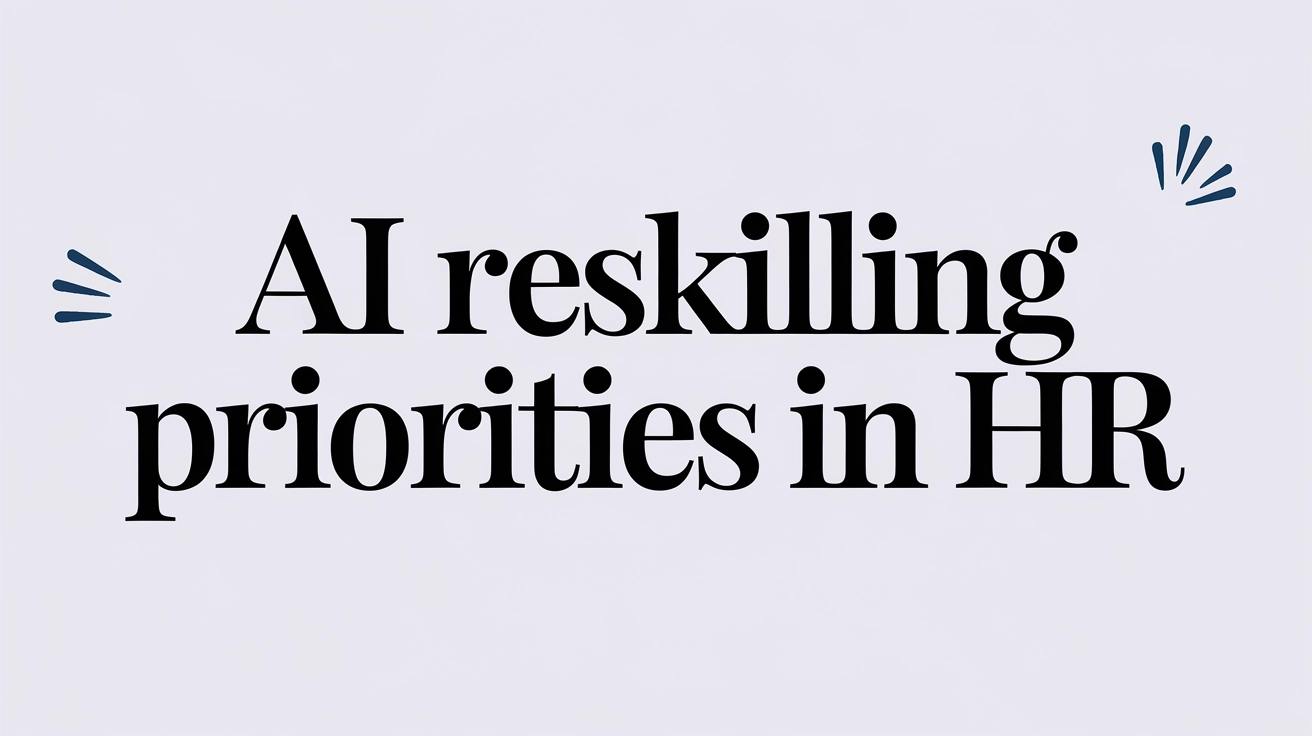AI Reskilling Priorities in HR

Despite the significant growth of artificial intelligence (AI) in the workplace, many human resources (HR) leaders are not prioritizing the essential reskilling of workers who may be affected by AI adoption. This finding emerges from a January 7 report published by The Conference Board, which surveyed 80 Chief Human Resources Officers (CHROs).
Low Prioritization of Reskilling
According to the report, a mere 7% of the surveyed CHROs indicated that they are actively implementing reskilling strategies for job roles likely to have at least a quarter of their tasks replaced by AI. In contrast, the majority of respondents (62%) highlighted that their primary focus regarding AI is experimenting with pilot programs and use cases in human capital management.
The Risks of Neglecting Upskilling
Diana Scott, leader of The Conference Board’s U.S. Human Capital Center, articulated the potential risks associated with this neglect, saying, “Organizations that don’t prioritize upskilling and reskilling their workforce might find themselves in a perilous position as AI proliferates and necessitates new skills in various roles.” She continued by stating that preparing and reskilling the workforce now can give companies a competitive edge.
Maintaining a Positive Workforce Outlook
Despite these challenges, the overall outlook of CHROs regarding the state of the workforce remains stable, similar to sentiments expressed in mid-2024. While expectations for hiring and retention slightly declined during the fourth quarter, there has been a notable increase in expectations for employee engagement as the new year approaches. Specifically, 42% of CHROs believe engagement levels will rise, a significant increase from 36% in the previous surveys.
Emphasizing AI Governance and Literacy
Regarding AI utilization in workplaces, 36% of CHROs are advocating for governance policies aimed at minimizing associated risks. Additionally, 21% are engaged in developing AI literacy programs for their workforce. There is a consistent effort among HR leaders to promote the benefits of AI while assuaging concerns, with 20% committing to the creation of new roles dedicated to AI expertise.
Diverse Skill Development Needs
According to an O’Reilly report, the demand for AI-related skills has surged, driven by a shift towards foundational skills over specific platform skills. Employers show particular interest in areas such as prompt engineering, understanding of AI principles, and comprehensive knowledge of generative AI. At the leadership level, however, more than half of vice presidents and directors reported lacking proper AI training, with only 42% feeling confident using AI tools without risking company data—a concerning statistic from a General Assembly report.
The Future of Work and AI Upskilling
The future of work is increasingly perceived as intertwined with AI upskilling, as outlined by a report from the AI-Enabled ICT Workforce Consortium—which includes industry giants like Google, Intel, and Cisco. The report emphasizes the need for workers to develop skills in AI literacy, readiness, data analytics, prompt engineering, and ethical considerations surrounding AI. This call for skill enhancement underscores the essential role of proactive HR leadership in workforce development amidst rapid technological advancements.